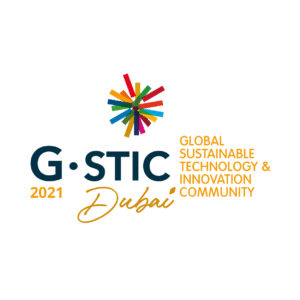Programme overview
Artificial Intelligence in radiology
How can assist with shortages in medical and paramedical staff, especially in LMIC countries? Radiology plays a key role in diagnosis and management of disease, providing individual patient data which enables personalisation of therapy. The introduction of Artificial Intelligence will enable it to be carried out faster, as well as more accurately, efficiently and sustainably. This will free up radiologists’ time for multidisciplinary meetings, policy making and education, while quality of diagnosis in regions that are short-staffed will be enhanced.
However, there are still some significant barriers to the adoption of Deep Learning (DL) algorithms for diagnostic and routine clinical purposes. This session will discuss the potential changes and outstanding issues regarding the use of AI in clinical practice, covering these topics:
- AI’s foreseeable impact on radiologists’ work and how this affects sustainability - Erik Robert Ranschaert, Digital doctor at the ETZ Hospital Tilburg (The Netherlands)
- Implementation of AI in medical imaging equipment for improved quality and sustainability - Ole Per Maloy, Managing Director Siemens Healthineers
- AI Deployment in LMIC Countries - Herman Oosterwijk, Trainer/Consultant, Manager Informatics for RAD-AID International
- Transmural Radiology and AI - Anjum Ahmed, Chief Medical Officer Agfa Healthcare
- How AI is changing the landscape of medicine - Wiro Niessen, Professor of Biomedical Imager Analysis at Erasmus MC & TU Delft (The Netherlands)
- AI management and financing - Erik Robert Ranschaert, Digital doctor at the ETZ Hospital Tilburg (The Netherlands)
Needs and opportunities for healthcare workers in shaping sustainable healthcare systems
Healthcare workers (HCWs) play a vital role in providing the necessary care to advance health and wellbeing across the globe. The past decades have been marked by an increasing shortage of HCWs, with a special focus on nursing, thus threatening the sustainability of healthcare systems. The International Council of Nurses (ICN) estimates that up to 13 million nurses will be needed to fill the global nurse shortage gap in the future. We must act now to mitigate the risk of increased turnover of nurses. According to NAW (formerly IOM) nurses should practice to the full extent of their education, should achieve higher levels of education and training, and finally should be full partners with physicians and other HCWs.
Since the beginning of the COVID pandemic, nurses demonstrated their unique contribution to healthcare and stepped up far beyond their line of duty, risking their own health. What will the impact of the pandemic be? Will it further exacerbate the nursing shortage, or in contrast, just provide new opportunities to shape the future of nursing?
In this session, we’ll focus on the special needs and opportunities for nursing. Topics that will be touched upon are: what do healthcare workers need, to stay engaged and motivated in healthcare? How important is the working environment and what can healthcare organisations do to enhance engagement? How sustainable are today’s financing systems and what can they learn from each other? Which shift in skill mix and competencies do nurses need in the future?
International speakers with backgrounds in research, academia end healthcare policy will present their views and engage in discussion with healthcare administrators, to shape the future of nursing.
- The globally inequitable workforce distribution: migration, cultural fit and economic impact - Mrs. Marguerite Baty Lucea, Assistant Professor at Towson University
- Useful methods for managing health workforce shortages - Dr. Eszter Kovacs, Assistant Professor at Health Services Management Training Centre, Semmelweis University, Head of the Health Workforce Planning Knowledge Centre, Programme coordinator of the WHO Collaborating Centre on Human Resources for Health Development
- Engaged staff provide safe, high-quality care - Mrs. Rebecca Richmond, Director, Optum Advisory Services at Optum UK
- The working environment in healthcare and the impact on staff wellbeing: strategies to adapt the practice setting - Dr. Walter Sermeus, Professor at the Institute for Healthcare Policy, KU Leuven (Belgium) - Programme Director for the Master in Health Management & Policy, KU Leuven (Belgium) - Head of WHO CC on Human Resources for Health Research & Policy - Senior Fellow to the Center for Health Outcomes and Policy Research at the University of Pennsylvania School, USA
- The rise of self-employed healthcare workers: filling the missing gaps - Mr. Lex Tabak, Specialist in the development of self-employed healthcare workers within the Dutch Healthcare system, Behavior analyst


